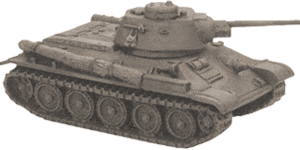Special Forces Berlin

Special Forces Berlin by James Stejskal is an engaging, informative, and eye-opening look at a special forces unit (though it was technically two units, with one ending in the mid-1980s and replaced by the other, these were ostensibly the same unit) that one could argue may have just been the proverbial best-of-the-best. I'll get to more on that arguably controversial statement in a moment, but note also that is a book which is very difficult to put down. That's because it is not just a unit history. This is a book in which the author colorfully and engagingly describes many of the unit's activities with such detail and tension such that sections of this book are every bit as page-turning as a Robert Ludlum thriller. The subject of this work, U.S. Army Special Forces Detachment "A", is lucky to have once employed an operator who is clearly as talented with the pen as he must have been with the deadly tools of his trade. In that regard I must also note the modesty of Mr. Stejskal.
Today it is all-too-common to have former special forces operators running to publishers as soon as they leave the service, publishing memoirs of their exploits that put themselves front and center in glory hogging narratives that do a great disservice to the larger special forces community. In contrast, Mr. Stejskal writes as a third-party observer, as a historian (albeit a talented historian who knows just the right stories and anecdotes to include in his work to bring it to life). On only a couple of pages is there even a hint of a reference to his own role with Detachment "A". In this vein he continues in a superb tradition of other special forces veterans, such as James D. McLeroy (whose excellent recounting of The Battle of Kham Duc in which he was a participant I recently reviewed). These men are the polar opposite of other recent special forces operators who have found great financial success emphasizing their individual exploits in narratives describing combat situations where the survival of one depends upon the sacrifice and teamwork of many. Stejskal does none of that here. He is the embodiment in that regard of a model special forces veteran.
Perhaps the most important accomplishment of Special Forces Berlin is to not only bring to life a virtually unknown and vitally underappreciated collection of soldiers but also describe a unit whose wide-range of skills were unmatched in the US military or intelligence establishment. In fact, one could argue that Detachment "A" was and is singular in its range of expertise and abilities. As descibed by the author on pp. 277-278:
At that time [The years 1956-1990], no other US military unit possessed both a robust direct-action capability (a combination of the CT [counter-terrorism] mission and basic UW [unconventional warfare] skills) and a unilateral US clandestine special operations capability...the only such unit(s) in the US military that integrated urban special operations, intelligence, direct action, and UW stay-behind skills in one package, not to mention its cover RST [reference here to reconnaissance and surveillance] mission.
Moreover, in the fiasco at Desert One (during the abortive April 1980 Iran-Hostage raid) only one unit really shined. That being Detachment "A" - who performed flawlessly in executing its pre-raid reconnaissance operation in Tehran. The description of this operation was both educational and well written. After reading this book anyone would be hard-pressed to argue that "Detachment A" wasn't the best-of-the-best in the US military throughout much of the Cold War era. One could even argue that it's skillset as practiced in the late 1970's up to the mid-1980's equally stood up as best in its class in comparison to even its newest and more widely acclaimed US special forces peers in Delta Force or SEAL TEAM 6. I highly recommend this book to anyone interested in special forces operations.



Post new comment